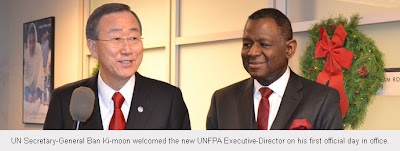A
report from the Federal Ministry of Health (FMOH) highlights a new initiative – the Data Inventory and Documentation Initiative (DIDI) – that aims to better align Nigeria’s health survey database with international standards. The report argues that such data “are invaluable resources for statisticians, researchers and analysts”, a statement that could very easily be extended to include benefits for health care professionals. After all, proper cataloging of health information could mean the difference between treating 200 patients today (preventing the spread of a disease) and treating 20,000 patients tomorrow in a full blown epidemic. I admit that this is an extreme example, but then again, health care is all about extremes. We can’t expect any less when we’re dealing so intimately with human life.
In any case, the report identifies the International Household Survey Network (IHSN), the World Bank, *PARIS21, the International Health Facility Assessment Network and USAID, as organizations that will help the FMOH with this transition. **MEASURE Evaluation will provide much of the technical support. In addition, the ministry has requested that data from private surveys (conducted by individuals and organizations) be contributed to the program. In all, it seems like a multi-faceted effort that is well poised to do wonders for the health situation in Nigeria.
It’s an incredibly fortunate coincidence that the FMOH would launch such a program shortly after the appointment of ex-minister of health,
Babatunde Osotimehin to the position of Executive Director at the United Nations Population Fund (UNFPA). From such a position, Osotimehin can contribute greatly to programs like DIDI and thankfully, he seems ready to do just that. In
a visit to his successor at the ministry (Prof. Onyebuchi Chukwu), Osotimehin re-affirmed his dedication to the health sector, promising to “provide more for Nigeria than ever before.” Embracing the sentiment, Chukwu praised the efforts of the ex-minister, asserting that his appointment at the UNFPA was a clear indicator of his exemplary leadership during his tenure.

This alliance is encouraging on multiple levels. Most clearly, it holds great promise for the development of epidemiology and heath care management in Nigeria. In addition, it legitimizes Nigeria’s position as a country that has the potential to be a forerunner in global health. Very importantly, it’s a great example of a smooth hand-over in a leadership position, something that Nigeria doesn’t see very often. Let’s hope that the Nigeria-UNFPA relationship will live up to expectation and ultimately, help programs like DIDI reach their full potential.
* PARIS 21 - Partnership in Statistics for Development in the 21st Century (Founded in November 1999 by the United Nations)
** MEASURE Evaluation - Monitoring and Evaluation to Assess and Use Results (Program sponsored by USAID)


